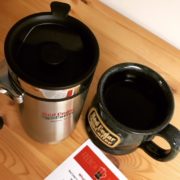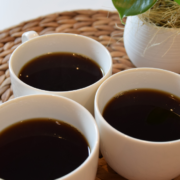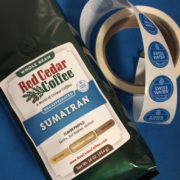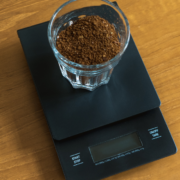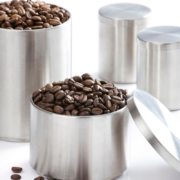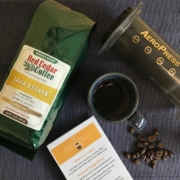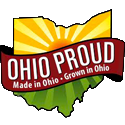Decaf Coffee and Roast Style
Ever notice a color difference between roasted decaf coffee beans and caffeinated coffee beans? If you have been enjoying regular coffee and have made the switch to decaf, you might be surprised that the decaf coffee bean looks darker than other caffeinated coffees you have enjoyed.
Swiss Water Processed decaf coffee beans are very different from other coffee beans. While there are several ways to decaffeinate coffee, Red Cedar Coffee Co. only roasts those that have been decaffeinated by Swiss Water Processed.
The decaffeination process takes place in British Columbia, Canada, before the green coffee beans arrive at Red Cedar Coffee Co. To decaffeinate the coffee beans, the green coffee beans are soaked in hot water for around 8-10 hours to remove the caffeine. During this time the coffee beans swell, become porous, and the caffeine molecules move out of the swelled coffee bean. By using water, much of the flavor profile of the coffee bean remains. This process is chemical-free and removes 99.9% of caffeine from the bean. The newly decaffeinated green beans are dried and prepared for shipping to coffee roasters.
The decaffeination process affects the composition of the coffee bean. When we open a bag of green Swiss Water Processed decaf coffee prior to roasting, the coffee beans appear uniform in color but darker than green caffeinated coffee beans.
The bean density also differs between Swiss Water Processed decaffeinated coffee beans and regular coffee beans. Decaffeinated coffee beans have less density and are lighter because the caffeine compounds have been removed. The density changes impact how the decaf coffee bean can take heat during the roasting process. For this reason, there is a limit to how much heat a decaf coffee bean can take during roasting.
The outside color of the decaf coffee bean can be misleading. Therefore, we always check the internal color of the coffee bean for quality control. For each roast we pull a sample to evaluate color based on the Agtron scale. Coffee samples are ground and compared to a numerical scale—referencing how dark or light a coffee bean is. You can be assured that your decaf has met our specifications before it is packaged.

